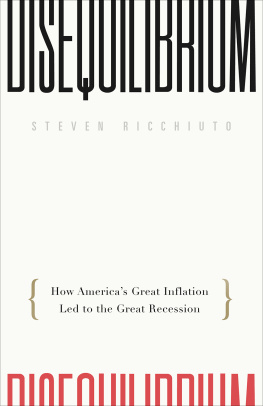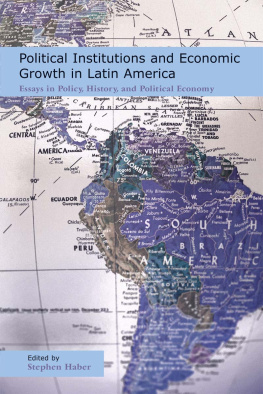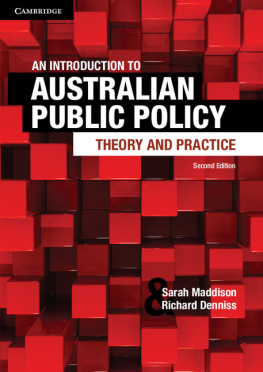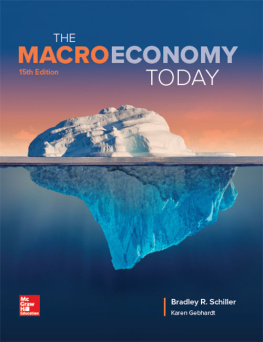Maddison - Contours of the world economy, 1-2030 AD: essays in macro-economic history
Here you can read online Maddison - Contours of the world economy, 1-2030 AD: essays in macro-economic history full text of the book (entire story) in english for free. Download pdf and epub, get meaning, cover and reviews about this ebook. City: Oxford, year: 2013;2007, publisher: Oxford University Press USA - OSO, genre: Non-fiction. Description of the work, (preface) as well as reviews are available. Best literature library LitArk.com created for fans of good reading and offers a wide selection of genres:
Romance novel
Science fiction
Adventure
Detective
Science
History
Home and family
Prose
Art
Politics
Computer
Non-fiction
Religion
Business
Children
Humor
Choose a favorite category and find really read worthwhile books. Enjoy immersion in the world of imagination, feel the emotions of the characters or learn something new for yourself, make an fascinating discovery.

- Book:Contours of the world economy, 1-2030 AD: essays in macro-economic history
- Author:
- Publisher:Oxford University Press USA - OSO
- Genre:
- Year:2013;2007
- City:Oxford
- Rating:4 / 5
- Favourites:Add to favourites
- Your mark:
- 80
- 1
- 2
- 3
- 4
- 5
Contours of the world economy, 1-2030 AD: essays in macro-economic history: summary, description and annotation
We offer to read an annotation, description, summary or preface (depends on what the author of the book "Contours of the world economy, 1-2030 AD: essays in macro-economic history" wrote himself). If you haven't found the necessary information about the book — write in the comments, we will try to find it.
Maddison: author's other books
Who wrote Contours of the world economy, 1-2030 AD: essays in macro-economic history? Find out the surname, the name of the author of the book and a list of all author's works by series.
Contours of the world economy, 1-2030 AD: essays in macro-economic history — read online for free the complete book (whole text) full work
Below is the text of the book, divided by pages. System saving the place of the last page read, allows you to conveniently read the book "Contours of the world economy, 1-2030 AD: essays in macro-economic history" online for free, without having to search again every time where you left off. Put a bookmark, and you can go to the page where you finished reading at any time.
Font size:
Interval:
Bookmark:
Contours of the World Economy, 12030AD

Essays in Macro-Economic History
Angus Maddison


Great Clarendon Street, Oxford OX2 6DP
Oxford University Press is a department of the University of Oxford.
It furthers the Universitys objective of excellence in research, scholarship,
and education by publishing worldwide in
Oxford New York
Auckland Cape Town Dar es Salaam Hong Kong Karachi
Kuala Lumpur Madrid Melbourne Mexico City Nairobi
New Delhi Shanghai Taipei Toronto
With offices in
Argentina Austria Brazil Chile Czech Republic France Greece
Guatemala Hungary Italy Japan Poland Portugal Singapore
South Korea Switzerland Thailand Turkey Ukraine Vietnam
Oxford is a registered trade mark of Oxford University Press
in the UK and in certain other countries
Published in the United States
by Oxford University Press Inc., New York
Angus Maddison, 2007
The moral rights of the author have been asserted
Database right Oxford University Press (maker)
First published 2007
All rights reserved. No part of this publication may be reproduced,
stored in a retrieval system, or transmitted, in any form or by any means,
without the prior permission in writing of Oxford University Press,
or as expressly permitted by law, or under terms agreed with the appropriate
reprographics rights organization. Enquiries concerning reproduction
outside the scope of the above should be sent to the Rights Department,
Oxford University Press, at the address above
You must not circulate this book in any other binding or cover
and you must impose the same condition on any acquirer
British Library Cataloguing in Publication Data
Data available
Library of Congress Cataloging in Publication Data
Data available
Typeset by SPI Publisher Services, Pondicherry, India
ISBN 9780199227211
ISBN 9780199227204 (Pbk.)
I am grateful for comments on earlier drafts by Fatih Birol, Derek Blades, Alan Bowman, Henk-Jan Brinkman, Roger Brown, Ian Castles, John Coatsworth, Max Corden, Robert Cribb, Franois Crouzet, Pierre van der Eng, Stanley Engerman, Paul Frijters, Andre Hofman, Catrinus Jepma, Wim Jongman, Andrew Kamarck, Carol Kidwell, Tao Kong, Paul Lamartine Yates, David Landes, Debin Ma, Charles Maddison, John R. McNeill, Stanislav Menshikov, Jim Oeppen, Peter Oppenheimer, Guy Pfefferman, Leandro Prados de la Escosura, Prasada Rao, Dominic Rathbone, Osamu Saito, Simon Scott, Graeme Snooks, Kaoru Sugihara, Eddy Szirmai, Bart van Ark, and Harry X. Wu.
Elizabeth Maddison, Tom Kuipers, and Gerard Ypma gave me invaluable advice on the art of computing and Dirk Stelder was kind enough to construct the map of the Roman Empire for the frontispiece and .
I am particularly indebted to my friend Colin McEvedy (19302005), who shared my enthusiasm for quantitative exploration of the past, gave me invaluable guidance on historical demography, precious insights into the ancient world, and incisive answers to a welter of questions.
I benefited from discussions at meetings in which I presented parts of the analysis: the Kuznets Memorial lecture at Yale University in 1998, the Wendt lecture at the American Enterprise Institute, the Abramovitz lecture at Stanford University in 2001, a Harvard University Workshop organized by the Luxembourg Institute for European and International Studies in 2002, the Colin Clark lecture at the University of Queensland in 2003, the Ruggles lecture at the International Association for Research on Income and Wealth in Cork, the Figuerola Lecture at the Universidad Carlos III de Madrid in 2004, the Arndt lecture at the Australian National University in 2005, and seminars in Groningen and Queensland in 2006 on World Economic Performance, Past, Present, and Future, to mark my 80th birthday.
An earlier version of in the Review of Income and Wealth in March 2005.
The purpose of this book is to identify the forces which explain how and why some parts of the world have grown rich and others have lagged behind.
It is a companion study to earlier books of mine. Monitoring the World Economy, 18201992 (1995) dealt with performance in the capitalist epoch, for which the evidence is incomparably richer than it was 60 years ago. There is still a need to fill gaps and crosscheck existing estimates, but the broad contours of development in this period are not under serious challenge. The World Economy: A Millennial Perspective (2001) and The World Economy: Historical Statistics (2003) had a much longer temporal perspective, back to the first century AD. Here growth was much slower, inter-country differences in income smaller, quantitative evidence weaker and harder to find, with greater reliance on clues and conjecture. There is also considerable disagreement amongst economic historians about the contours of development in these earlier centuries. However, recent research has made considerable advances in measuring economic progress and demographic change in western Europe and the major Asian countries back to 1500, and there is enough evidence to make tentative estimates for the Roman empire in the first century AD.
Scrutiny of distant horizons is a meaningful, useful, and necessary exercise because differences in the pace and pattern of change in major parts of the world economy have deep roots in the past. It is also useful to look into the future to see how the relative importance of the western and Asian economies is likely to change. I have therefore made projections for the world economy and its major components to 2030.
Quantification clarifies issues which qualitative analysis leaves fuzzy. It is more readily contestable and likely to be contested. It sharpens scholarly discussion, sparks off rival hypotheses, and contributes to the dynamics of the research process. It can only do this if the sources of the quantitative evidence and the nature of the conjectures and proxy procedures are described transparently so that a dissenting reader can augment or reject parts of the evidence, or introduce alternative hypotheses. Macro-economic quantification is not new. It started in the seventeenth century, as demonstrated in . It fell out of fashion until the 1950s when it became a major tool for policy analysis. I have tried here to promote its resurrection as a tool for historical analysis.
Although quantification is important, no sensible person would claim that it can tell the whole story. One needs to probe beyond quantifiable causes to deeper layers of explanation. This is a complex task because there are many interactive forces whose individual impact is difficult to specify. Countries have widely different institutions, traditions, and policies, which have a powerful impact on the operation of atomistic market forces. Hence the need to use a blend of evidence on proximate and deeper layers of causality.
There are three parts to the book. The first contains an analysis of the long-term performance of different parts of the world economy. The second analyses the development of techniques of macro-economic measurement since the seventeenth century. The third contains projections of world economic growth to 2030, and examines the possible impact of global warming.
Next pageFont size:
Interval:
Bookmark:
Similar books «Contours of the world economy, 1-2030 AD: essays in macro-economic history»
Look at similar books to Contours of the world economy, 1-2030 AD: essays in macro-economic history. We have selected literature similar in name and meaning in the hope of providing readers with more options to find new, interesting, not yet read works.
Discussion, reviews of the book Contours of the world economy, 1-2030 AD: essays in macro-economic history and just readers' own opinions. Leave your comments, write what you think about the work, its meaning or the main characters. Specify what exactly you liked and what you didn't like, and why you think so.







